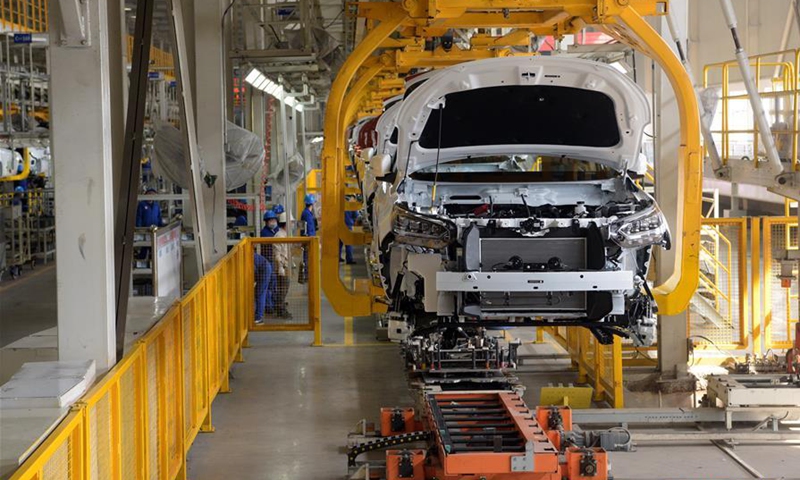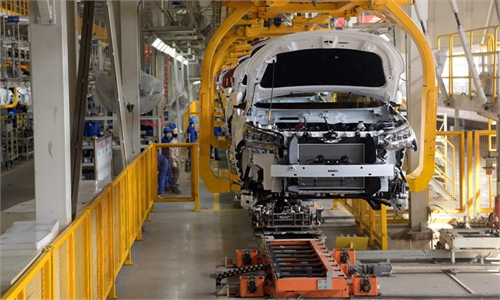
Workers work on the assembly line at a factory of vehicle manufacturer BYD Auto in Xi'an, northwest China's Shaanxi Province. File photo: Xinhua
Chinese electric vehicle maker BYD confirmed to the Global Times on Tuesday that it had suspended fuel car production in March, making it the first car company across the globe to adopt this strategic approach.
Analysts pointed out that BYD's strategic move will have a positive impact on the development of the domestic new-energy vehicle (NEV) industry, while providing another operational model for international carmakers as it is the first company to take this initiative.
BYD's strategic adjustment is also in line with China's "dual carbon" goals - peaking carbon emissions by 2030 and achieving carbon neutrality by 2060, while aiming to promote the sustainable development of society, the company told the Global Times.
According to a statement, BYD will be dedicated to pure electric vehicles and plug-in hybrid vehicles for its automotive businesses.
The passenger car sales of BYD hit a record high at 104,338 in March, with a year-on-year increase of 160.9 percent, setting a new record for monthly NEV sales in China, according to the company. The company produced 106,658 NEVs during the month, up 422.97 percent from 2021.
Among BYD's 104,338 units sold, pure electric vehicles accounted for 53,664 units, while sales of plug-in hybrid vehicles reached 50,674 units.
It is not surprising for BYD to adopt this strategy as the company has been reducing its production of internal-combustion cars, and its competitiveness in this sector was also relatively low, Wu Shuocheng, an independent car analyst, told the Global Times on Tuesday.
Wu added that BYD can fully focus the brand's strengths on NEV production. As to whether other domestic enterprises will take the same approach, Wu noted that it will vary depending on each company's sales and production investment in fuel cars.
Multiple countries, including China, have mapped out plans to gradually replace traditional fuel cars with NEVs.
Sales of NEVs will account for about 20 percent of the country's new vehicle sales by 2025, according to a plan jointly issued by the National Development and Reform Commission, China's top economic planner, and the National Energy Administration in March.
Wu noted that it would not be hard for the nation to achieve the 20 percent goal, and the sales of NEVs in some cities in China have already surpassed the figure.
BYD also said that it will continue to provide complete service and after-sales protection for already sold fuel vehicles.
Global Times


